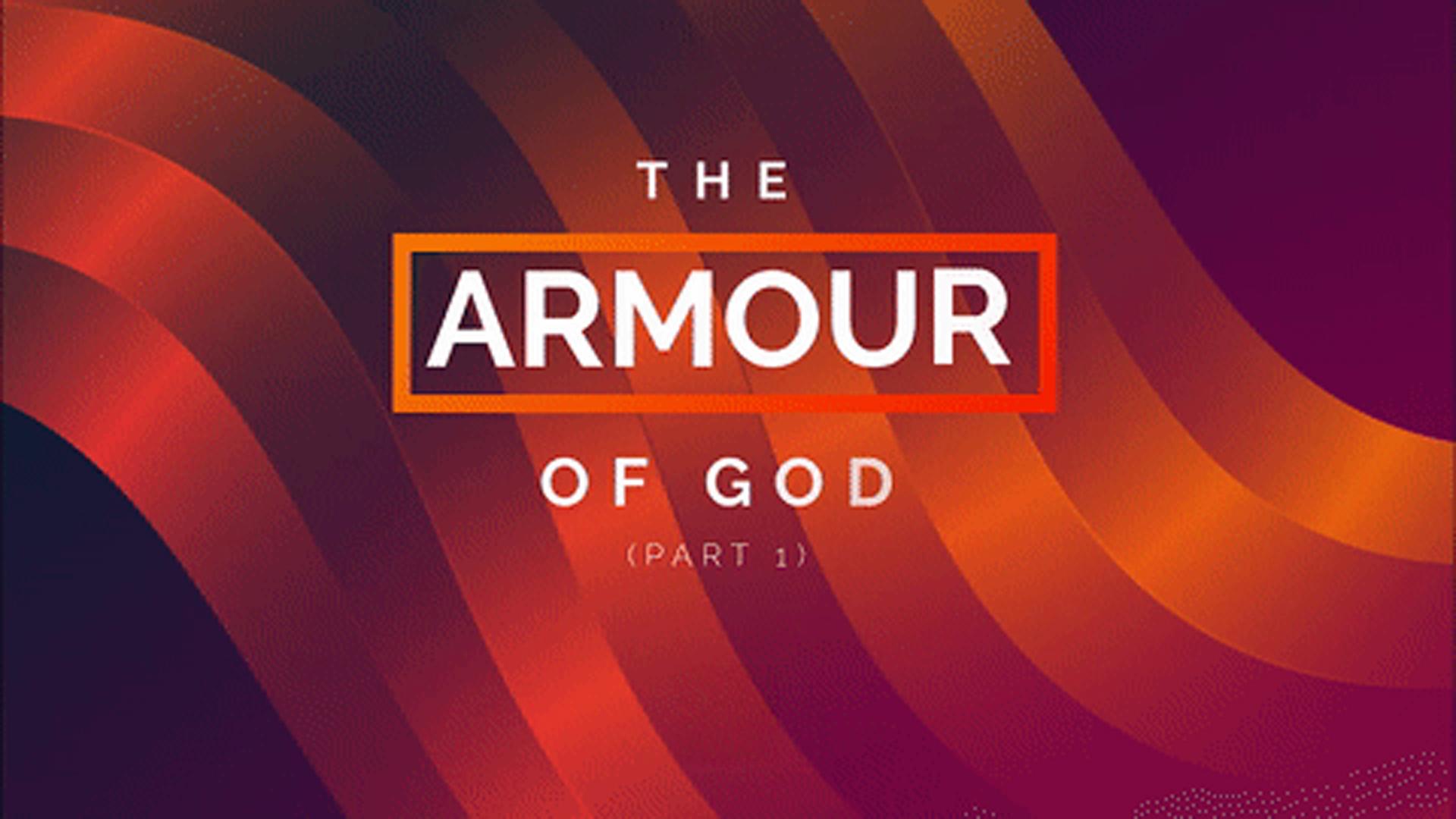The Armour of God passage in the Bible, found in Ephesians 6:10-20, stands as the rousing conclusion to the Apostle Paul’s letter to the Ephesians. Here, Paul exhorts the recipients to prepare themselves for spiritual warfare by presenting them with the dynamic illustration of a soldier putting on the various pieces of battle armour that a 1st century Roman soldier would routinely wear.
Part 1 of this discussion will investigate Paul’s opening statements regarding the true source of our strength and discuss the first three items of armour described; the belt, the breastplate and the sandals. Part 2 will investigate the remaining pieces of armour; the shield, helmet and sword.
God's Strength, Not My Strength
The opening line of the Armour of God passage highlights something that is key to correctly interpreting what follows. Paul begins by saying “be strengthened by the Lord and by his vast strength.” (Ephesians 6:10, CSB) The important thing to notice here is the source of this strength. It is not a strength that we must somehow muster on our own. Instead, we must recognise that it is God Himself who is the true source of the strength that we need to win spiritual battles.
Paul continues by explaining that in order to resist the devil, we will need to “put on the full armour of God.” (Ephesians 6:11, CSB) Once again, Paul makes it very clear: God is our strength. Indeed, every element of armour that Paul goes on to mention illustrates something that is provided for us by God. As we read through this passage then, it is important to remember that Paul’s intention is not to present an invigorating exhortation in order to build self-confidence in the listener. Rather, he intends to illustrate the true source and scope of our confidence: God Himself. This is fitting when we consider the overall scope of this letter to the Ephesians.
An easy way of viewing the structure of Ephesians is to see it in two halves. Chapters 1-3 emphasise a number of foundational theological points: Our identity “in Christ”, the unity of the church and righteousness through faith in Christ. Having laid this theological foundation, chapter 4 tellingly begins with the word “therefore” and moves towards the life-applications of this theology. It seems that Paul is trying to communicate that right-believing leads to right-doing. This is certainly the case when it comes to this passage on warfare armour. Having established who we are in Christ and the righteousness He has given to us as a gift, we are exhorted to put this revelation into practise by putting on the full armour of God.
The notion of God being our strength and Protector is by no means limited to the Book of Ephesians, but also frequently observed in The Book of Psalms. Psalms 28:7-8 (CSB) declares “The Lord is my strength and shield. My heart trusts in him and I am helped… The Lord is the strength of his people; he is a stronghold of salvation for his anointed.” It seems that in his time of trouble, David had the same revelation as Paul.
In Psalms 46:1 (CSB), it is said that “God is our refuge and strength, a helper who is found in times of trouble.” This truth is further reinforced in Isaiah 41:10 (CSB) where God Himself declares, “So do not fear, for I am with you; do not be dismayed, for I am your God. I will strengthen you and help you; I will uphold you with my righteous hand.” The testimony of both the Old and New Testaments is clear: The source of true Christian strength is not found within our natural selves but in God Himself—our unfailing strength and Protector.
The source of true Christian strength is not found within our natural selves but in God Himself—our unfailing strength and Protector.
Belt of Truth
Stand, therefore, with truth like a belt around your waist…
It would be difficult to think of a question that encapsulates the mindset of the modern world better than Pilate’s “What is truth?” (John 18:38, CSB)
In a world that lays personal desires and emotions as the foundation of subjective truth, the timeless claim of the Bible stands as boldly as it ever has. Jesus said, “I am the way, the truth and the life. No one comes to the Father except through me.” (John 14:6, CSB)
In contrast to a world that denies universal truth, the Bible declares that we can find that truth in the person of Jesus Christ. As a result, we can see Paul’s imagery begin to paint a picture of Christian spiritual warfare. To the world, the claim that we can find absolute truth in one person is foolish and restricting, yet for the one who knows Christ personally, it is liberating!
Earlier in the Gospel of John, Jesus proclaims, “If you continue in my word, you really are my disciples. You will know the truth and the truth shall set you free” (John 8:31-32, CSB)
In contrast to a world that denies universal truth, the Bible declares that we can find that truth in the person of Jesus Christ.
Although a belt might not sound like a particularly useful object for battle, for the Roman soldier of Paul’s day, it served as the crucial centrepiece of his armour. The belt kept the breastplate tightly in place, held the sword securely on the waist and allowed the soldier to tuck in his tunic so that he could run without limitation. Likewise, as we put on our ‘armour’ as Christians, truth acts as the centrepiece that holds other parts of the armour securely in place and prevents us from tripping as we run boldly into battle!
Breastplate of Righteousness
… righteousness like armour on your chest…
The breastplate of a Roman soldier was generally made of iron and covered the shoulders and torso. It had the critical role of protecting the soldier’s vital organs. For this reason, the crucial part that righteousness plays in our spiritual warfare becomes clear. Righteousness protects the most important parts of our being from the attacks of the enemy. However, once again, it is vital to remember where our righteousness comes from. When Paul exhorts us to put on the breastplate of righteousness, he does not mean that we must try to be righteous in our own strength. This is impossible. We cannot achieve our own righteousness. As it says in Isaiah, “all our righteous acts are like a polluted garment.” (Isaiah 64:6, CSB)
Recall that this is God’s armour that has been given to us. Earlier in the letter to the Ephesians, Paul theologically established that righteousness is given to us as a gift by Jesus: “For you are saved by grace through faith, and this is not from yourselves; it is God’s gift— not from works so that no one can boast.” (Ephesians 2:8-9, CSB) As is the pattern in Ephesians, the imagery of the warfare armour is intended as the practical application of theological foundations laid down in the earlier chapter. Having established theologically that righteousness is a gift given to us by God, Paul now instructs us to apply this gift by putting on the breastplate of righteousness. In the words of Jesus, “Seek first the kingdom of God and his righteousness…” (Matthew 6:33, CSB)
Righteousness is a gift from God and not of our own doing. Our job is to apply this gift to our lives by putting on the breastplate of righteousness for protection from the enemy.
Feet Ready with the Gospel
… and your feet sandalled with readiness for the gospel of peace.
Running is something I have loved doing since I was very young.
My greatest desire in life, at the time, was to be the fastest cross-country runner at my athletics club, so I trained every night. I remember learning the story of the origin of the marathon. After victory was won in battle, in the ancient Greek empire, a herald named Pheidippides ran 42.2 kilometres (26 miles) from a place called Marathon to Athens in order to proclaim the good news of the victory. Thus, the term ‘marathon’ was born. In many ways, this joyful desire to spread inspiring news of victory is the attitude we should have as Christians in proclaiming the good news of what Jesus has done in our lives personally.
As a relatively serious young runner, I used to have different shoes for different athletics events. I had super-lightweight spiked shoes for short sprints as well as shoes with greater structure for long-distance cross-country events. Putting on the right shoes was imperative in terms of being ready for the race at hand. So it is for Christians sharing the Gospel. Putting on the right shoes in preparation is a poignant illustration of the intention and readiness that we should have to speak the gospel. As Paul says in Romans (making reference to Isaiah), “How will they preach unless they are sent? Just as it is written, ‘How beautiful are the feet of those who bring good news of good things!’” (Romans 10:15) Pheidippides was prepared to run huge distances in order to proclaim news of a worldly battle victory— one that over time has become more or less irrelevant. How much more then should we as Christians be prepared and equipped with readiness to share the eternally relevant truth of the Gospel of Jesus Christ?
Key Points
- We must recognise that it is God Himself who is the true source of the strength that we need to win spiritual battles.
- Right-believing leads to right-doing. Having established who we are in Christ and the righteousness God has given to us as a gift, we are exhorted to put this revelation into practise by putting on the full armour of God
- In contrast to a world that denies universal truth, the Bible declares that we can find that truth in the person of Jesus Christ.Knowing Christ personally isn’t restricting but is liberating!
- Putting on the right shoes in preparation is a poignant illustration of the intention and readiness that we should have to share the eternally relevant truth of the Gospel of Jesus Christ
More post from College
See More





